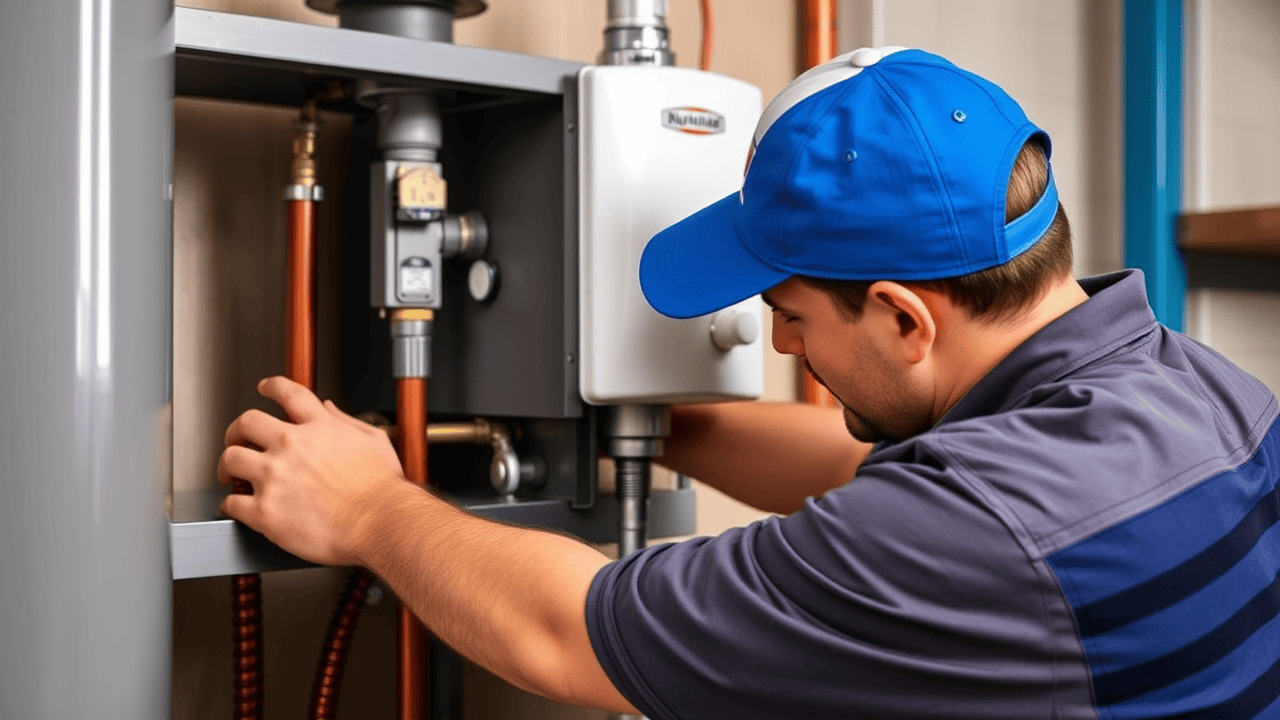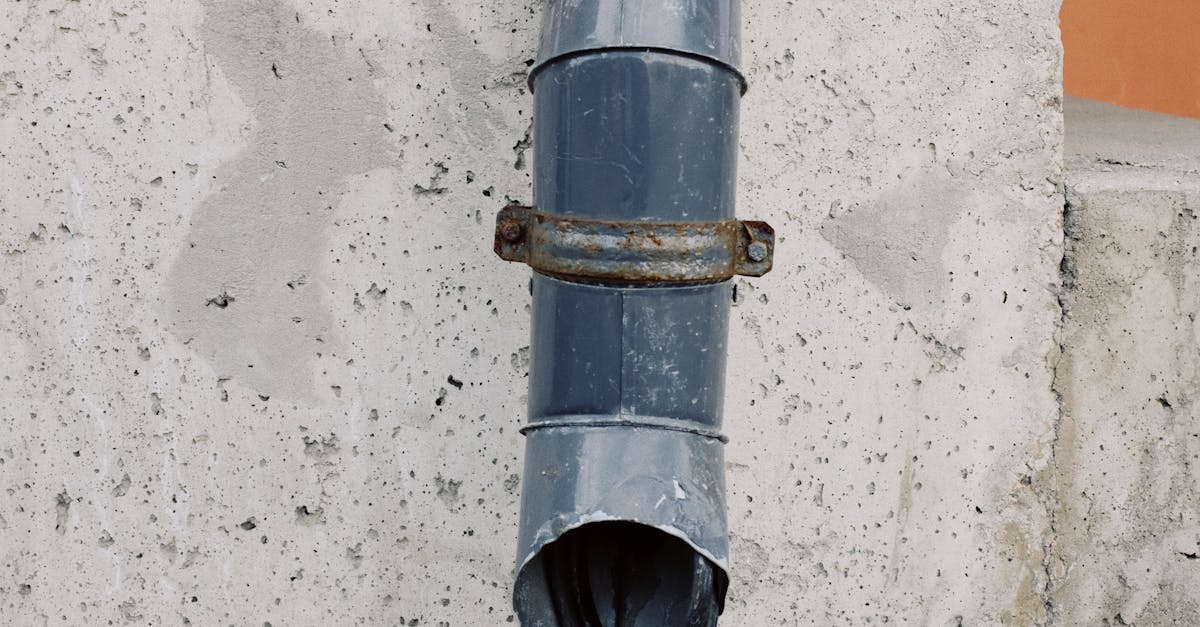
How to Extend the Life of Your Water Heater
Regular maintenance is crucial for extending the life of your water heater. Flushing the tank at least once a year removes sediment build-up. This build-up can lead to corrosion and inefficiency over time. Checking the anode rod for signs of deterioration helps prevent rust in the tank. Replace it as needed to ensure optimal performance.
Proper insulation around the water heater and pipes retains heat, reducing energy costs. Setting the thermostat to a safe but efficient temperature may also prolong the unit’s lifespan. Homeowners should consider professional help for maintenance. Searching for "water heater installation and repair near me" will connect you with specialists who can ensure your system runs smoothly and efficiently.
Recommended Practices
Maintaining your water heater is key to ensuring its longevity. Regular flushing of the tank helps remove sediment buildup, which can hinder efficiency and lead to premature failures. Checking the anode rod periodically is also important. This sacrificial component protects the tank from corrosion, so replacing it when necessary can significantly extend your heater's lifespan. Homeowners might consider scheduling annual professional maintenance, which covers system checks and necessary repairs.
Another effective practice involves monitoring the temperature settings. Keeping the thermostat at 120°F is typically sufficient for most households while reducing energy costs. Additionally, insulating the water heater and the pipes can minimize heat loss, further enhancing efficiency. For those unsure about the best options, searching for "water heater installation and repair near me" can connect you with local experts who can provide tailored advice based on your specific situation.
Cost Considerations for Replacement
When considering the replacement of a home water heater, it's essential to factor in the overall cost, which extends beyond just purchasing the unit. The price of the water heater itself can vary based on type, capacity, and energy efficiency features. Additional costs arise from installation, which typically requires professional assistance for safety and compliance with local codes. Homeowners should also be aware of potential modifications needed for plumbing and electrical systems. Searching for "water heater installation and repair near me" can help find local professionals who offer competitive pricing and quality service.
Budgeting for a new water heater involves evaluating both short-term and long-term expenses. While the initial investment can be significant, opting for a more energy-efficient model could lead to lower utility bills over time. Homeowners should consider the expected lifespan of the water heater and its energy efficiency rating when making a decision. It's also prudent to account for potential maintenance or repair costs in the future, as these can impact the total cost of ownership. Proper research and planning can ensure that families choose a heater that meets their needs while fitting within their budget.
Budgeting for a New Water Heater
Replacing a water heater is a significant financial commitment that requires careful planning. The average cost of a new unit can vary widely based on type, size, energy efficiency, and brand. Installation costs will also add to the overall budget. Homeowners should gather quotes from several contractors to understand the market rate for the services they need. It’s wise to consider potential additional expenses such as permits, upgraded plumbing, or electrical work that may be necessary during the installation process.
When budgeting for a new water heater, it's essential to factor in both immediate and long-term costs. Newer models may have a higher upfront cost but can offer savings over time through improved efficiency. Homeowners should remember to ask about warranties and service plans, as these can impact long-term maintenance costs. Searching for “water heater installation and repair near me” can help find qualified professionals who might offer competitive rates while ensuring the installation meets building codes and safety standards.
Environmental Impact of Old Water Heaters
Old water heaters can have a significant environmental impact. Many outdated models are less energy-efficient, leading to higher energy consumption. This increased demand translates to more fossil fuels burned at power plants, contributing to carbon emissions and global warming. When these appliances reach the end of their life, improper disposal can also result in harmful materials leaking into the soil and groundwater.
Upgrading to a more energy-efficient model can mitigate these environmental concerns. Newer water heaters are designed to comply with energy efficiency standards, which lowers overall energy use. This not only reduces the carbon footprint but also saves money on utility bills. Homeowners considering this upgrade should search for "water heater installation and repair near me" to find local services that can help with the transition to more eco-friendly options.
Energy Efficiency Standards
Energy efficiency standards for water heaters play a significant role in determining their performance and impact on energy bills. The U.S. Department of Energy sets these standards to minimize energy consumption and reduce greenhouse gas emissions. Newer models must adhere to these regulations, often resulting in enhanced insulation and improved heating methods. Homeowners can benefit from these advancements as they translate into lower operating costs over the lifespan of the unit.
For those considering the installation of a new system, understanding energy efficiency ratings is crucial. High-efficiency water heaters can lead to substantial savings, making them a smart investment. Homeowners should also consult professionals for proper installation to ensure compliance with local regulations. Searching for "water heater installation and repair near me" can help identify qualified technicians who can provide guidance on selecting the best options based on energy efficiency and individual needs.
FAQS
What is the average life expectancy of a home water heater?
The average life expectancy of a home water heater is typically between 8 to 12 years, depending on the type, maintenance, and usage.
How can I tell if my water heater needs to be replaced?
Signs that your water heater may need to be replaced include inconsistent water temperatures, rust or sediment in the water, unusual noises, and leaks around the unit.
What are some recommended practices to extend the life of my water heater?
To extend the life of your water heater, consider flushing the tank annually, checking the anode rod regularly, and ensuring proper insulation around the unit.
Are there cost considerations when replacing a water heater?
Yes, costs can vary significantly based on the type of water heater, installation fees, and any additional plumbing or electrical work that may be required.
How do environmental impacts relate to old water heaters?
Old water heaters tend to be less energy-efficient, which can lead to higher energy consumption and increased greenhouse gas emissions. Upgrading to a newer model can help mitigate these impacts.


